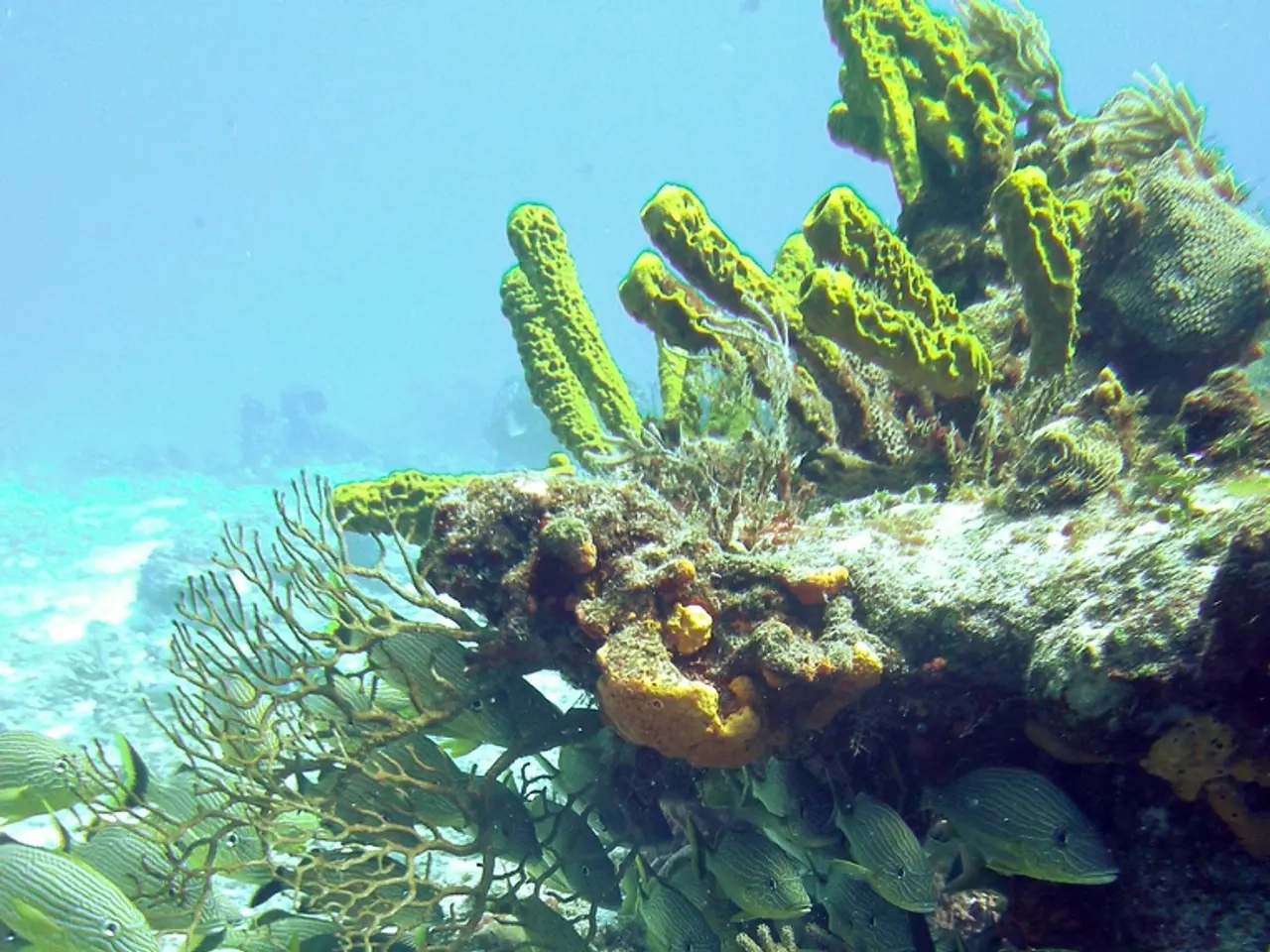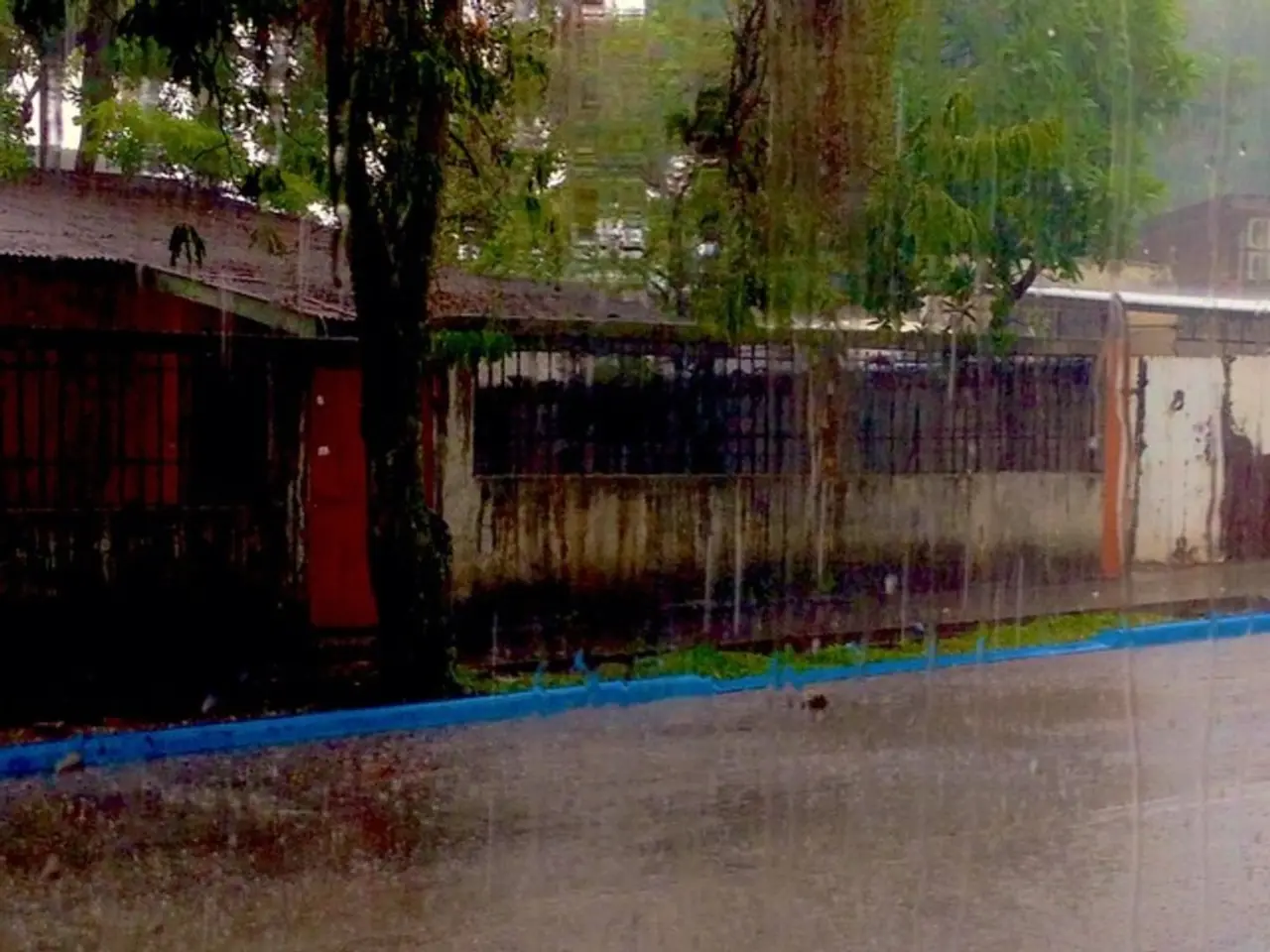Conflict between Iran and Israel resonates with Pakistani fishermen
Balochistan, a province in Pakistan with a significant coastline along the Arabian Sea, is facing a severe crisis in its fishing industry due to the closure of its border with Iran. The closure, which was a result of the ongoing Iran-Israel conflict, has disrupted the informal export of fish, particularly tuna, to Iran, a vital market for local fishers.
This border closure has ended a critical barter trade with Iran, where fish was exchanged for fuel. The sudden halt has caused immediate economic hardship and is threatening the tuna fishery's collapse, putting both employment and income at risk.
Fishing provides livelihoods to tens of thousands of families in the province, with over 16,000 registered and 6,000 smaller, unregistered boats operating in its waters. The disruption affects the local economy and food security by limiting fish exports and reducing fishing activity due to fuel shortages.
The closure has not only caused economic hardship but is also threatening the tuna fishery's collapse. Jumait Jangir Baloch, a certified fish trader by the government in Gwadar, and Talib Katchi from the Pakistan Fisherfolk Forum, have expressed their concerns about the impact on women fish retailers and the overall food security in the region.
The crisis has further depressed the price for fishers' catches, making each trip feel like gambling their future. Haleema Baloch, a woman who grades, dries, and sells fish in Gwadar, is losing her wages due to the crisis. The poor are finding it difficult to afford poultry or meat, which could lead to a food security and nutrition crisis.
The entire supply chain is collapsing, affecting ice factories, fish transporters, fish-processing owners, boat mechanics, and others. Kalmati, from the Gwadar Chamber of Commerce, is advocating for fuel subsidies and the reopening of the border for properly regulated trade. A provincial official has submitted a proposal for a PKR 380 million (US$1.34 million) endowment fund to support emergency fuel subsidies, welfare schemes, and compensation for affected fishermen.
The crisis in Balochistan's fishing industry could have far-reaching impacts beyond its shores if not addressed quickly. Lateefa Nasir, a member and beneficiary of the Ormara Cooperative Society, and her family, who live in Ormara and depend on fishing for their livelihood, are among those severely affected.
The closure of the border with Iran has led to a crisis in the Balochistan economy, with thousands of kilograms of high-value fresh catch going unsold due to a lack of ways to preserve fish for exports. Tahir Rasheed, CEO of Balochistan Rural Support Programme, suggests that modern infrastructure like cold-storage and canning facilities could transform the province's fishing industry into a lucrative export sector.
In summary, the Iran-Israel conflict has had crippling effects on the livelihoods of fishing communities in Balochistan by cutting off fuel supplies, blocking fish exports to Iran, causing economic and ecological stress, and heightening food insecurity in an already vulnerable region. Urgent action is needed to address this crisis and protect the livelihoods of thousands of families in Balochistan.
[1] Balochistan Times. (2021). Fishing industry in Balochistan facing severe crisis due to Iran border closure. Retrieved from https://www.balochistimes.com/news/157450/fishing-industry-in-balochistan-facing-severe-crisis-due-to-iran-border-closure/
[2] Dawn. (2021). Iran border closure hits Balochistan's fishing industry hard. Retrieved from https://www.dawn.com/news/1645118
[3] The Express Tribune. (2021). Balochistan fishermen struggle as Iran border closure disrupts trade. Retrieved from https://tribune.com.pk/story/2378456/balochistan-fishermen-struggle-as-iran-border-closure-disrupts-trade
[4] The News International. (2021). Iran border closure disrupts Balochistan's fishing industry. Retrieved from https://www.thenews.com.pk/print/820642-iran-border-closure-disrupts-balochistans-fishing-industry
The closure of the Iran border is threatening the collapse of the tuna fishery in Balochistan, exacerbating both economic and food security issues in the region ['sdg']. This border closure, originating from the Iran-Israel conflict, has not only caused economic difficulties but also has far-reaching impacts on the politics and general news of the region ['politics', 'general-news']. The crisis has disrupted the informal export of fish, particularly tuna, to Iran and halted a critical barter trade that provided fuel in exchange for fish, leading to a severe hardship for local fishers ['climate change']. This has also put thousands of jobs and incomes at risk and resulted in the poor finding it difficult to afford meat, potentially leading to a food security and nutrition crisis ['crime-and-justice'].








